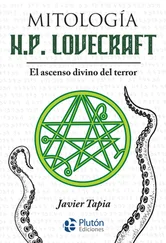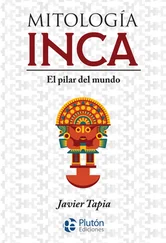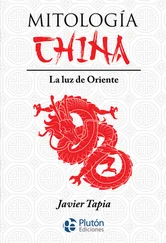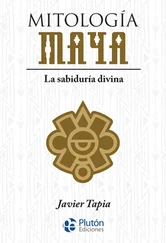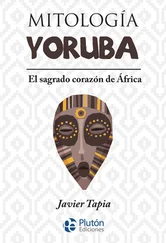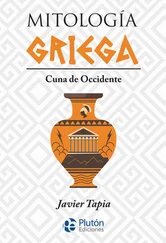“Let me show you the operation we got going,” Sister Wanda said. “We got everything. All we need is a little, you know, know- how.” She started up the stairs and Desdemona followed.
(It’s a long stairway, three flights up, and Sister Wanda has bad knees, so it will take some time for them to reach the top. Leave them there, climbing, while I explain what my grandmother had gotten herself into.)
“Sometime in the summer of 1930, an amiable but faintly mysterious peddler suddenly appeared in the black ghetto of Detroit.” (I’m quoting from C. Eric Lincoln’s The Black Muslims of America. ) “He was thought to be an Arab, although his racial and national identity remain undocumented. He was welcomed into homes of culture-hungry African-Americans who were eager to purchase his silks and artifacts, which he claimed were those worn by black people in their homeland across the sea . . . His customers were so anxious to learn of their own past and the country from which they came that the peddler soon began holding meetings from house to house throughout the community.
“At first, the ‘prophet,’ as he came to be known, confined his teachings to a recitation of his experiences in foreign lands, admonitions against certain foods, and suggestions for improving listeners’ physical health. He was kind, friendly, unassuming and patient.”
“Having aroused the interests of his host” (we move now to An Original Man by Claude Andrew Clegg II), “[the peddler] would then deliver his sales pitch on the history and future of African-Americans. The tactic worked well, and eventually he honed it to the point that meetings of curious blacks were held in private homes. Later, public halls were rented for his orations, and an organizational structure for his ‘Nation of Islam’ began to take shape in the midst of poverty-stricken Detroit.”
The peddler had many names. Sometimes he called himself Mr. Farrad Mohammad, or Mr. F. Mohammad Ali. Other times he referred to himself as Fred Dodd, Professor Ford, Wallace Ford, W. D. Ford, Wali Farrad, Wardell Fard, or W. D. Fard. He had just as many origins. People claimed he was a black Jamaican whose father was a Syrian Muslim. One rumor maintained that he was a Palestinian Arab who had fomented racial unrest in India, South Africa, and London before moving to Detroit. There was a story that he was the son of rich parents from the tribe of Koreish, the Prophet Muhammad’s own tribe, while FBI records stated that Fard was born in either New Zealand or Portland, Oregon, to either Hawaiian or British and Polynesian parents.
One thing is clear: by 1932, Fard had established Temple No. 1 in Detroit. It was the back stairs of this temple that Desdemona found herself climbing.
“We sell the silks right from the temple,” Sister Wanda explained above. “Make the clothes ourself according to Minister Fard’s own designs. From clothes our forefathers wore in Africa. Used to be we just ordered the fabric and sewed up the clothes ourself. But with this Depression, fabric getting harder and harder to come by. So Minister Fard he had one of his revelations. Come to me one morning and said, ‘We must own the means and ends of sericulture itself.’ That how he talk. Eloquent? Man could talk a dog off a meat truck.”
Climbing, Desdemona was beginning to make sense of things. The fancy suits of the men outside. The redecoration within. Sister Wanda reached the landing—“In here our training class”—and threw open the door. Desdemona stepped up and saw them.
Twenty-three teenage girls, in bright chadors and head scarves, sewing clothes. They didn’t so much as look up from their labor as the Supreme Captain brought in the stranger. Heads bent, mouths fanning straight pins, hem-covered oxfords working unseen treadles, they continued production. “This be our Muslim Girls Training and General Civilization Class. See how good and proper they are? Don’t say a word unless you do. ‘Islam’ means submission. You know that? But getting back to why I run the ad. We running low on fabric. Everybody out of business seems like.”
She led Desdemona across the room. A wooden box full of dirt lay open.
“So what we did was, we ordered these silkworms from a company. You know, mail order? We got more on the way. Problem is, they don’t seem to like it here in Detroit. Don’t blame ’em myself. They keep dying on us, and when they do? Ooowhee, what a stink! My sweet Jes—“ She caught herself. “Just an expression. I was brought up Sanctified. Listen, what you say your name was?”
“Desdemona.”
“Listen, Des, before I became Supreme Captain, I did hair and nails. Not no farmer’s daughter, understand? This thumb look green to you? Help me out. What do these silkworm fellas like? How we get them to, you know, silkify?”
“It hard work.”
“We don’t mind.”
“It take money.”
“We got plenty.”
Desdemona picked up a shriveled worm, barely alive. She cooed to it in Greek.
“Listen up now, little sisters,” Sister Wanda said, and, as one, the girls stopped sewing, crossed hands in laps, and looked up attentively. “This the new lady gonna teach us how to make silk. She a mulatto like Minister Fard and she gonna bring us back the knowledge of the lost art of our people. So we can do for ourself.”
Twenty-three pairs of eyes fell on Desdemona. She gathered courage. She translated what she wanted to say into English and went over it twice before she spoke. “To make good silk,” she then pronounced, beginning her lessons to the Muslim Girls Training and General Civilization Class, “you have to be pure.”
“We trying, Des. Praise Allah. We trying.”
That was how my grandmother came to work for the Nation of Islam. Like a cleaning lady working in Grosse Pointe, she came and went by the back door. Instead of a hat, she wore a head scarf to conceal her irresistible ears. She never spoke above a whisper. She never asked questions or complained. Having grown up in a country ruled by others, she found it all familiar. The fezzes, the prayer rugs, the crescent moons: it was a little like going home.
For the residents of Black Bottom it was like traveling to another planet. The temple’s front doors, in a sweet reversal of most American entrances, let blacks in and kept whites out. The former paintings in the lobby—landscapes aglow with Manifest Destiny, scenes of Indians being slaughtered—had been carted down to the basement. In their place were depictions of African history: a prince and princess strolling beside a crystal river; a conclave of black scholars debating in an outdoor forum.
People came to Temple No. 1 to hear Fard’s lectures. They also came to shop. In the old cloakroom, Sister Wanda displayed the garments that the Prophet said were “the same kind that the Negro people use in their home in the East.” She rippled the iridescent fabrics under the lights as converts stepped up to pay. Women exchanged the maids’ uniforms of subservience for the white chadors of emancipation. Men replaced the overalls of oppression with the silk suits of dignity. The temple’s cash register overflowed. In lean times, the mosque was flush. Ford was closing factories but, at 3408 Hastings Street, Fard was open for business.
Desdemona saw little of all this up on the third floor. She spent her mornings teaching in the classroom and her afternoons in the Silk Room, where the uncut fabrics were stored. One morning she brought in her silkworm box for show-and-tell. She passed the box around, telling the story of its travels, how her grandfather had carved it from olivewood and how it had survived a fire, and she managed to do all this without saying anything derogatory about the students’ co-religionists. In fact, the girls were so sweet and friendly that Desdemona remembered what it had been like in the times when the Greeks and Turks used to get along.
Читать дальше
Конец ознакомительного отрывка
Купить книгу


